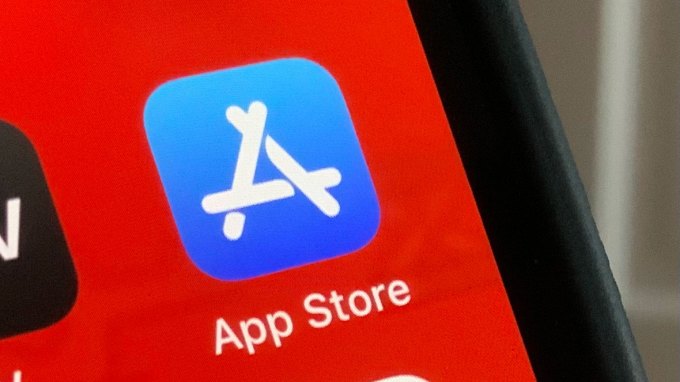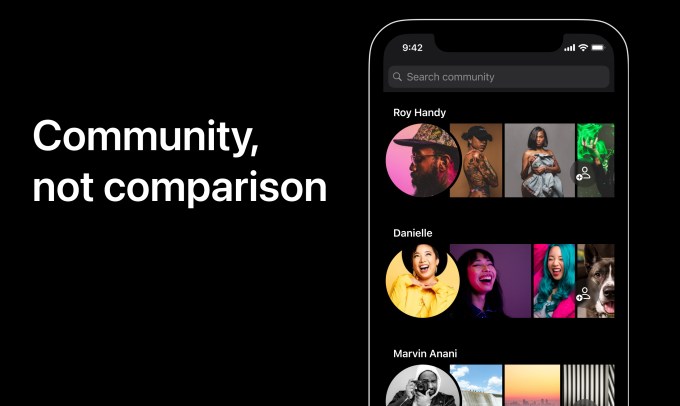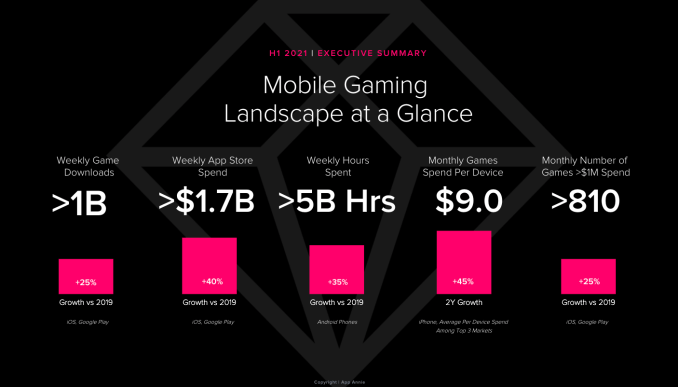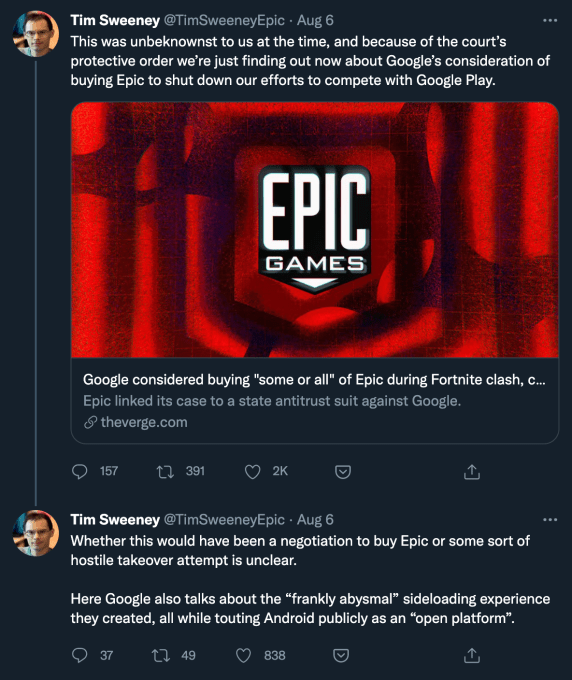News: This Week in Apps: Google, TikTok add protections for minors, app store bill proposes big changes, what’s new with Samsung
Welcome back to This Week in Apps, the weekly TechCrunch series that recaps the latest in mobile OS news, mobile applications and the overall app economy. The app industry continues to grow, with a record 218 billion downloads and $143 billion in global consumer spend in 2020. Consumers last year also spent 3.5 trillion minutes using apps on Android devices alone.
Welcome back to This Week in Apps, the weekly TechCrunch series that recaps the latest in mobile OS news, mobile applications and the overall app economy.
The app industry continues to grow, with a record 218 billion downloads and $143 billion in global consumer spend in 2020. Consumers last year also spent 3.5 trillion minutes using apps on Android devices alone. And in the U.S., app usage surged ahead of the time spent watching live TV. Currently, the average American watches 3.7 hours of live TV per day, but now spends four hours per day on their mobile devices.
Apps aren’t just a way to pass idle hours — they’re also a big business. In 2019, mobile-first companies had a combined $544 billion valuation, 6.5x higher than those without a mobile focus. In 2020, investors poured $73 billion in capital into mobile companies — a figure that’s up 27% year-over-year.
This Week in Apps offers a way to keep up with this fast-moving industry in one place with the latest from the world of apps, including news, updates, startup fundings, mergers and acquisitions, and suggestions about new apps and games to try, too.
Do you want This Week in Apps in your inbox every Saturday? Sign up here: techcrunch.com/newsletters
Top Stories
A new Senate bill could put an end to app stores’ dominance

Image Credits: TechCrunch
A bipartisan group of three U.S. senators — Richard Blumenthal (D-CT), Amy Klobuchar (D-MN) and Marsha Blackburn (R-TN) — introduced a new piece of legislation called the Open Markets Act, could change the way mobile software is distributed. The bill would give developers the right to tell their customers about lower prices outside the app stores (without fear of punishment), and permit alternative payment mechanisms, sideloading and third-party app stores where developers could avoid platform fees. It would also bar platform makers like Apple and Google from using non-public information they collect via app stores to build out competing products, or rank those products more favorably.
The bill is being applauded by Apple critics, including the Coalition for App Fairness and its members, Epic Games, Spotify, Tile and others, who are now urging Congress to swiftly pass the legislation to level the playing field.
As regulatory pressure on platform makers has intensified, the companies looked for ways to better cater to smaller developers with drops in commission rates, as well as increased privacy and security measures — the latter which could help boost their arguments that the app store model is favorable to consumer interests.
Such a bill is a notable first step toward some sort of market changes, but it’s still too early to know if or when the bill will gain traction, much less be passed into law.
Tech giants Google, YouTube and TikTok follow Instagram with increased protections for minors
Google and YouTube (as well as TikTok) this week rolled out a series of changes to their products and services to increase the privacy and security of accounts belonging to teenaged users under the age of 18. The specific changes vary a bit from service to service, but are largely focused on making younger people’s accounts more private by default, ensuring they’re making an intentional choice when shifting accounts or content to become public, and limiting to what extent advertisers can target them. TikTok went a bit further to restrict push notifications after “bedtime” hours for its teen users, while YouTube chose to turn on its “take a break” and “bedtime” reminders by default instead.

Image Credits: TikTok
The changes follow similar moves announced just weeks ago by Instagram, and follow increased pressure from the U.S. Congress to do more to protect younger users from the harmful impacts of using technology.
One piece of legislation, which tech companies may be trying to get ahead of, is an update to COPPA that would expand some protections to children under the age of 18, instead of just under 13. What’s missing from all these initiatives, however, is any plan to more strictly verify children’s ages on an app. Since many kids already know to lie about their birth year at sign-up, it’s unclear how effective these measures will be in the long term.
Samsung Unpacked Wrap-Up

Image Credits: Brian Heater
Samsung this week hosted its Unpacked event, where it debuted the company’s latest mobile products. This time, the smartphone maker showed off a new crop of foldables, including the Galaxy Z Fold 3 and Galaxy Z Flip 3 (clamshell, woo!), which will give app makers even more device styles and formats to consider when designing their apps. Well, if these foldables ever gain market traction that is, instead of existing in consumers’ minds as a gimmick. (For what it’s worth, Microsoft hopped on the bandwagon.)
Samsung also introduced a new smartwatch powered by Google’s WearOS (if you can’t beat ’em…), the Galaxy Watch 4, and entry-level wireless earbuds, the Galaxy Buds 2.
Weekly News
Platforms: Apple
- Apple released the fifth betas of iOS 15 and iPadOS 15 to developers, which offer some more minor tweaks and stability improvements as the platforms head toward a fall release. New additions include an updated weather icon, shading around the tab interface in Safari on iPad, an option to use larger icons on iPad, a new warning pop-up that reminds you the iPhone is still findable when off, new splash screens for Apple’s apps, the integration of TestFlight info in the App Store and more.
- Apple released a new developer tool that allows app makers to test how their app behaves when the device is connected to 5G instead of Wi-Fi. The tool is necessary because iOS 15/iPadOS 15 devices can automatically prioritize 5G over Wi-Fi when the latter’s performance is slow.
- Apple settled a 2019 lawsuit with Corellium, a company that builds virtual iOS devices used by security researchers. Apple had said Corellium was infringing on its copyright, selling its product indiscriminately and compromising platform security. A judge dismissed Apple’s claims as “puzzling,” noting Corellium established “fair use.” The settlement terms were not disclosed.
- Apple’s Find My app in iOS 15 will use Bluetooth technology to precisely locate AirPods (Pro and Max) devices, and will tie AirPods to users’ Apple ID.
Platforms: Google

Image Credits: Google
- Google launched Android 12 beta 4, whose biggest new feature is that the platform has now reached stability. Developers can now test apps before the public release, without having to worry about future breaking changes. Android 12 offers a big redesign, with a more personalized “Material You” design language and increased privacy protections.
- Google banned the location data firm SafeGraph, funded by a former head of Saudi intelligence, which was paying developers to include their data collection tools in their apps so they could resell the data to other companies or government agencies. Any apps working with SafeGraph will have to remove the code.
E-commerce
- DoorDash recently held talks to buy Instacart, according to a report from The Information. The $40 billion-$50 billion deal would have combined two top food delivery apps — one for restaurants, the other for groceries — but talks fell through.
- Weedmaps added in-app cannabis purchasing for iPhone users. Thanks to looser App Store restrictions, Weedmaps users can now browse, select and purchase cannabis and have it delivered or set for pickup directly within the app.
- Instagram is testing ads in its Shop tab, which allow brands to feature either an image or image carousel. The ads will launch with an auction-based model and will only appear on mobile devices.
Augmented Reality
- Snap hired a Facebook AR executive, Joe Darko, The Information reported. The new AR leader, who previously launched the Spark AR Partner Network at Facebook, will now oversee Snap’s AR Developer Relations.
Fintech

Image Credits: Venmo
- Venmo announced it would allow its credit card holders to automatically buy cryptocurrency with their card’s cashback, through a new feature called Cash Back to Crypto. Cardholders can select between Bitcoin, Ethereum, Litecoin and Bitcoin Cash, which will be purchased monthly with no transaction fees.
Social
- Some Snap creators have left for other platforms as the company’s creator bonuses dried up, CNBC found. Snap had been paying $1 million per day in prize money for creators posting to its TikTok competitor, Spotlight. Now, it’s paying “millions” per month — and creators are chasing bigger bonuses elsewhere.
- Instagram’s TikTok competitor, Reels, added a new feature that allows users to search for audio to include in their short-form videos, and the pages for the tracks will show the other videos that used them — like TikTok offers.
- A report circulating this week claims TikTok surpassed Facebook’s downloads in 2020, which um, we already knew many months ago? But yeah, it did.
- Instagram rolled out new anti-abuse features after high-profile incidents of racism took place on its platform following the Euro 2020 final, where angry fans attacked players. New tools include Limits, which lets you restrict certain groups from DM’ing and commenting for a period of time; plus an expansion of Hidden Words to include new strings of emoji; and a more aggressive “Hide More Comments” feature.
- Instagram took down a website, LikeUp.Me, selling fake likes and followers. The site, which was served a C&D from Facebook, had earned around $100K in the past year.
- Reddit is rolling out a TikTok-like video feed button on its iOS app. The feature has reached “most” iOS users and drops them into a full screen experience where users can upvote, downvote, comment on, gift an award or share the video. You can also swipe up to see more videos, also like TikTok. Surprisingly, the company claims its acquired Dubsmash IP was not a part of this project.
Messaging

Image Credits: WhatsApp
- WhatsApp will gain the ability to transfer chat history between mobile operating systems. The feature is coming to Samsung devices first, followed by a broader Android rollout, then iOS. Samsung customers can use the company’s transfer tool, Smart Switch, which already copies other personal data between devices, to also now move their encrypted WhatsApp chat history, including voice notes, photos and conversations.
- Google is pushing mobile Hangouts users to switch to Google Chat through an in-app message that reminds users that Hangouts will be discontinued. Disgruntled users took to Google Play to express their anger with dozens of one-star reviews. How’s that mess of a messaging app strategy looking now, Google?
- Messenger delves into the design of its recently launched “Soundmojis,” which pair an emoji and sound together to create a new form of expression that would be universally understood and surprising.
- Facebook is bringing end-to-end encryption to Messenger calls, noting that E2E was the industry standard and what people now expect. The company said also it would begin testing E2E for group chats and calls in Messenger and Instagram DMs.
Photos
- Apple’s next iPhones will reportedly allow users to take “video portraits,” Bloomberg reported. Other additions will offer the ability to record video in the higher-quality format called ProRes and a new filters system to improve the look of photos.
- As Instagram’s photography community is getting increasingly frustrated by the app’s shift to video, a new app called Glass launched into beta to serve photographers of all sizes. As reported by Om Malik, who has been testing the app for nearly six months, subscription-based Glass is beautiful and fresh, and reminiscent of early Instagram, with support for comments and followers, but differentiates itself by not chasing clout though public likes.

Image Credits: Glass
Dating
- Facebook Dating is gaining an “audio chat” feature, which will allow matches to have voice chats to get to know one another. It’s also adding a Lucky Pick, to suggest daters outside someone’s typical preferences, and Match Anywhere, which allows users to consider locations outside their current city.
- A Match beta test is targeting users’ most common dating app complaints, like too much swiping and ghosting. Now, Match will offer weekly “Matched by Us” recommendations and will prompt users to unmatch or respond, instead of leaving conversations hanging. The company also hinted that it may roll out a human-led matchmaking feature in the future, as well.
- Tinder’s interactive feature, “Swipe Night,” is coming back after a 20 million user turnout from its “season 1.” The new version won’t be a choose-your-own-adventure, but rather a “Gen Z whodunit,” the company said, and will use the quick chat feature that allows users to chat without having first matched.
Streaming & Entertainment
- HBO Max added free episodes to its platform, including its app for mobile devices. Users can sample 13 episodes from top shows and originals without paying, including “Euphoria,” “Game of Thrones,” “Lovecraft Country,” “The Flight Attendant,” “Veneno,” “Warrior” and more, as well as browse the catalog to see what else is offered with a paid subscription.
- A Spotify representative told users in the company’s forum that its work to add support for the nearly 3-year-old AirPlay 2 technology was being abandoned for the time being, citing “driver compatibility issues.” The post gained a lot of attention from disgruntled users and press, leading Spotify to clarify that it “will support AirPlay 2,” without offering a time frame. The company, a staunch Apple critic, has been hesitant to support other Apple products, including HomePod speakers, where native support isn’t available.
- YouTube’s Android app is trying out a new gesture that will allow users to navigate its video “Chapters” by double-tapping with two fingers.
- A new U.S. streaming report by Penthera found that 71% of viewers stream video on 2 devices per day, on average, including a connected TV device and mobile. And 80% said they watch videos at home. But now 92% (up from 88% last year) now say re-buffering is the biggest problem they face while streaming.
Gaming

Image Credits: App Annie
- App Annie released its 2021 gaming report, which estimates mobile gaming will reach $120 billion in consumer spending by year-end, or 3.1x more than consoles. Other highlights include:
- 4 of the top 10 most downloaded subgenres across all games are in the hypercasual category.
- “Happy Glass” is the fastest ever hypercasual game to break 100 million downloads.
- The pandemic pushed gaming to new levels. Weekly game downloads topped 1 billion in March 2020, and have stayed there ever since.
- In H1 2021, there were over 810 games surpassing $1 million in consumer spending per month, up 25% from 2019.
- In H1 2021, per week there were over 1 billion downloads, $1.7 billion spent and 5 billion hours spent on mobile games globally.
- The U.S. topped the mobile games market by App Store consumer spending.
- AppLovin topped the charts for worldwide downloads, while Tencent dominated consumer spend.
- U.S. mobile game usage skews female (64% of gamers are female). That’s not the same in other markets, where more mobile gamers are men — like Japan (56% male) and South Korea (53% male).
- U.S. mobile tabletop game spending rose by 40% to $704 million over the past 12 months, a Sensor Tower report found. The top grossing game was Solitaire Grand Harvest from Supertreat, followed by Solitaire TriPeaks from GSN, then Yahtzee with Buddies Dice from Scopely. Downloads, however, declined by 12% YoY, with 202.7 million installs over the past 12 months, versus 230.7 million in the year-ago period.
- Epic Games CEO Tim Sweeney discovered a surprise in a set of recently unsealed court documents in the Epic Games v. Google antitrust case. He learned that Google had once mulled acquiring his company at some point — which Sweeney said was related to Epic’s decision to compete with Google Play. The documents also refer to the “frankly abysmal” sideloading experience on Android.
Food
- Google-owned navigation app Waze announced a partnership with Too Good To Go, an organization that works with small businesses and organizations to decrease food waste. The partnership will highlight independent restaurants and grocery stores in select U.S. cities that are taking steps to reduce food waste by showcasing them on the Waze map. These businesses also sell “surprise” bags of food that contain three times more food than the cost of the bag at the end of the day. The food is perfectly good, but can’t be sold the second day, so would otherwise be thrown out.
- OpenTable’s app added a new Direct Messaging feature that lets diners and restaurants communicate directly after a reservation is made, instead of having to place a phone call. The feature can be used to clarify a diner’s requests, or other changes, or even message after the reservation has ended in case of items that were left behind, or other needs.

Image Credits: OpenTable
Adtech
- Tapjoy launched MobileVoice, a market research solution for surveying mobile-first consumers where researchers bid for each response. Higher bids will give users more virtual currency for their game, which motivates consumers to share their opinions.
Government & Policy
- WhatsApp, Facebook, Instagram, Messenger and Twitter were restricted in Zambia amidst ongoing general elections on Thursday, polling day, through Sunday, when votes counts are expected to have ended.
- Facebook’s acquisition of GIF database Giphy has come under fire from U.K. regulator, the Competition and Markets Authority, which announced a preliminary finding that the deal “will harm competition.”
- India’s government says Twitter is now in compliance with the country’s new IT laws, which required the company to appoint a chief compliance officer, a nodal contact person and a resident grievance officer in the country.
Security & Privacy
- Recommended Reading: TechCrunch Editor-in-Chief Matthew Panzarino interviewed Apple Privacy head Erik Neuenschwander about the company’s plans to detect CSAM and Apple’s new Messages app safety features. Apple’s announcement stirred controversy in the security community because of how the company is implementing the technology, which some have argued could leave the door open for other governments or agencies to compromise for their own ends. Neuenschwander explains the system’s protections that make it less useful for doing so — meaning that its technology itself, and not just Apple’s word, could prevent this type of abuse. And in terms of user privacy, there is an opt-out — you just turn off iCloud Photos.
Funding and M&A
 Privacy-oriented search app Xayn raised $12 million in Series A funding led by Japanese investors Global Brain and KDDI (a Japanese telecommunications operator) for its app that fuses together search, a discovery feed and a mobile browser. The app will focus on Asian markets and Europe.
Privacy-oriented search app Xayn raised $12 million in Series A funding led by Japanese investors Global Brain and KDDI (a Japanese telecommunications operator) for its app that fuses together search, a discovery feed and a mobile browser. The app will focus on Asian markets and Europe.
 Social banking app Kroo raised $24.5 million in Series A funding led by Rudy Karsan, a high-net-worth tech entrepreneur and founder of Karlani Capital. The London-based fintech offers a prepaid card service but is moving toward offering expanded banking services in its mobile app.
Social banking app Kroo raised $24.5 million in Series A funding led by Rudy Karsan, a high-net-worth tech entrepreneur and founder of Karlani Capital. The London-based fintech offers a prepaid card service but is moving toward offering expanded banking services in its mobile app.
 Pokémon GO developer Niantic acquired the iPhone and iPad app Scaniverse for an undisclosed sum. The Scaniverse app allows users to scan objects and environments into high-res 3D, and will remain live on the App Store, and the founder will join Niantic’s AR team.
Pokémon GO developer Niantic acquired the iPhone and iPad app Scaniverse for an undisclosed sum. The Scaniverse app allows users to scan objects and environments into high-res 3D, and will remain live on the App Store, and the founder will join Niantic’s AR team.
 Car ownership “super app” Jerry raised $75 million in Series C funding led by existing backer Goodwater Capital, valuing its business at $450 million. The app uses automation to give consumers customized quotes from more than 45 insurance carriers, but is expanding into areas like financing, repair, warranties, parking, maintenance and more.
Car ownership “super app” Jerry raised $75 million in Series C funding led by existing backer Goodwater Capital, valuing its business at $450 million. The app uses automation to give consumers customized quotes from more than 45 insurance carriers, but is expanding into areas like financing, repair, warranties, parking, maintenance and more.
 Mobile field service startup Youreka Labs raised $8.5 million in Series A funding co-led by Boulder Ventures and Grotech Ventures. The company simplifies development of mobile service applications with a no-code authoring studio and one-click deployment to Apple, Android and Windows.
Mobile field service startup Youreka Labs raised $8.5 million in Series A funding co-led by Boulder Ventures and Grotech Ventures. The company simplifies development of mobile service applications with a no-code authoring studio and one-click deployment to Apple, Android and Windows.
 Reddit confirmed it has raised $410 million of a planned $700 million Series F funding round, led by Fidelity, valuing the business at $10 billion. The funds will be used to further build out community and advertising efforts, as well as increase headcount.
Reddit confirmed it has raised $410 million of a planned $700 million Series F funding round, led by Fidelity, valuing the business at $10 billion. The funds will be used to further build out community and advertising efforts, as well as increase headcount.
 U.S. grocery delivery service Gopuff acquired U.K. competitor Dija, which was only eight months old, to expand into Europe. Gopuff had previously acquired a similar startup, Fancy, just three months ago.
U.S. grocery delivery service Gopuff acquired U.K. competitor Dija, which was only eight months old, to expand into Europe. Gopuff had previously acquired a similar startup, Fancy, just three months ago.
 India’s VerSe Innovation, makers of Dailyhunt and Josh apps, raised over $450 million in a Series I funding round led by Siguler Guff, Baillie Gifford, affiliates of Carlyle Asia Partners Growth II and others. The company’s new valuation is now “nearing $3 billion.” Dailyhunt now has over 300 million MAUs and Josh has 115 million MAUs.
India’s VerSe Innovation, makers of Dailyhunt and Josh apps, raised over $450 million in a Series I funding round led by Siguler Guff, Baillie Gifford, affiliates of Carlyle Asia Partners Growth II and others. The company’s new valuation is now “nearing $3 billion.” Dailyhunt now has over 300 million MAUs and Josh has 115 million MAUs.
 Social calendar app Saturn raised $35 million led by General Catalyst, Insight Partners and Coatue, bringing its total raise to date to $44 million. The app allows high school students to manage their schedule, track assignments, chat with friends and more across web and mobile devices.
Social calendar app Saturn raised $35 million led by General Catalyst, Insight Partners and Coatue, bringing its total raise to date to $44 million. The app allows high school students to manage their schedule, track assignments, chat with friends and more across web and mobile devices.
 Fintech Robinhood acquired Say Technologies, a company offering a communications platform that allows smaller shareholders to pose questions to companies in which they invest. The $140 million all-cash deal is Robinhood’s first major purchase since going public in late July.
Fintech Robinhood acquired Say Technologies, a company offering a communications platform that allows smaller shareholders to pose questions to companies in which they invest. The $140 million all-cash deal is Robinhood’s first major purchase since going public in late July.
 Medal.tv, a short-form video clipping service and social network for gamers, entered the livestreaming market with the acquisition of Rawa.tv, a Twitch rival based in Dubai. Deal terms were not revealed, but the deal was in the seven figures.
Medal.tv, a short-form video clipping service and social network for gamers, entered the livestreaming market with the acquisition of Rawa.tv, a Twitch rival based in Dubai. Deal terms were not revealed, but the deal was in the seven figures.
 Turkey’s Trendyol, an e-commerce website and app serving over 30 million shoppers, raised $1.5 billion in a round that valued the company at $16.5 billion. General Atlantic, SoftBank Vision Fund 2, Princeville Capital and sovereign wealth funds, ADQ (UAE) and Qatar Investment Authority, co-led.
Turkey’s Trendyol, an e-commerce website and app serving over 30 million shoppers, raised $1.5 billion in a round that valued the company at $16.5 billion. General Atlantic, SoftBank Vision Fund 2, Princeville Capital and sovereign wealth funds, ADQ (UAE) and Qatar Investment Authority, co-led.
 Argentine fintech Ualá raised $350 million in Series D funding, valuing its business at $2.45 billion. The company offers a Mastercard and app, where users can access bill pay solutions, investment products, personal loans, BNPL installments and insurance. To date, the startup has issued more than 3.5 million cards in Mexico and Argentina.
Argentine fintech Ualá raised $350 million in Series D funding, valuing its business at $2.45 billion. The company offers a Mastercard and app, where users can access bill pay solutions, investment products, personal loans, BNPL installments and insurance. To date, the startup has issued more than 3.5 million cards in Mexico and Argentina.
 Fintech Chime Financial raised $750 million in a round that values the business at $25 billion, ahead of a planned IPO next year. The round was led by new investor Sequoia Capital Global Equities. Chime today offers credit cards and no-fees banking services through a mobile app.
Fintech Chime Financial raised $750 million in a round that values the business at $25 billion, ahead of a planned IPO next year. The round was led by new investor Sequoia Capital Global Equities. Chime today offers credit cards and no-fees banking services through a mobile app.
 Mexico’s Orchata, a mobile app for getting groceries delivered via micro-fulfillment centers, raised $4 million in seed funding from investors including Y Combinator, JAM Fund, FJ Labs, Venture Friends, Investo and Foundation Capital, and angel investors Ross Lipson, Mike Hennessey, Brian Requarth and Javier Mata.
Mexico’s Orchata, a mobile app for getting groceries delivered via micro-fulfillment centers, raised $4 million in seed funding from investors including Y Combinator, JAM Fund, FJ Labs, Venture Friends, Investo and Foundation Capital, and angel investors Ross Lipson, Mike Hennessey, Brian Requarth and Javier Mata.
Public Markets
Krafton, the South Korean maker of PUBG, closed 9% down on its first day of trading on Tuesday after first debuting at $432 per share. Analysts said the company tried to go out with a valuation that was too high. At closing, the valuation was $19.32 billion. To date, PUBG Mobile has generated $6.3 billion in player spending across the app stores.
Crypto app Coinbase’s stock jumped 7% on Wednesday after better-than-expected earnings, where the company reported $1.6 billion in net profit for the quarter (earnings per share of $3.45), beating analyst estimates. Coinbase trading volumes were also up 38% to $462 billion in Q2.
TikTok owner ByteDance is considering a Hong Kong IPO, The FT reported. The Beijing-based tech company may list in either Q4 2021 or early 2022. As of its last fundraise of $5 billion in December 2020, the company was valued at $180 billion.
Mobile marketer and game provider AppLovin’s stock jumped 4.2% in after-hours trading Wednesday after the company reported 123% revenue growth to $669 million year-over-year from $299 million, beating analyst estimates. EPS was 4 cents versus a loss of 10 cents in the year-ago period.
The Disney+ streaming service beat analyst expectations to reach 116 million subscribers in Disney’s fiscal Q3. Disney now has nearly 174 million subscribers across Disney+, Hulu and ESPN+.
Downloads
Reelgood (update)
Streaming guide Reelgood has historically offered a great service for discovering new things to watch, and keeping track of where you’ve left off with favorite shows. Now, the company is introducing a new feature called Search Party, which makes it easier for two or more people to find something to watch that they all agree on. Using a familiar swipe left or right mechanism, users try to find a “match.” The feature also lets you set other filters, like release year, IMDb rating, genre and more, to narrow its suggestions. When one or more matches is detected, Reelgood notifies the group and displays the matches in a new tab where they’re organized by the total number of “Likes.” Reelgood is a free download on iOS and Android.
PairPlay

PairPlay is a clever new app from Jonathan Wegener, previously co-founder of Timehop and product designer at Snap, which turns a pair of AirPods into a two-person adventure game. You and one other player will split the pair, with one person taking the left AirPod and the other taking the right, to start the audio challenge. The players will hear different sides of the audio adventure story at the same time, which they can then play out together. Storylines may have you playing as secret agents, ghost hunters, robots and more. The game is family-friendly and can be played with kids as young as 7, though arguably some adults will have fun with this one, too. The app is a free download and requires AirPods.
















